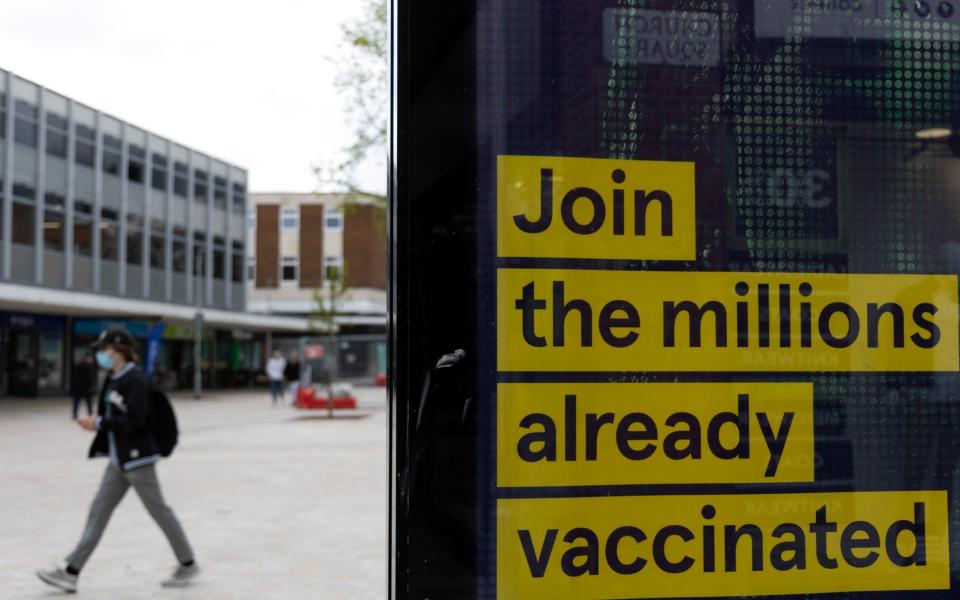Covid-19 vaccine doubters more likely to be convinced if offered a choice of jab

Giving people a choice of Covid-19 jabs could be the best way of converting those who are currently unsure about whether to have an injection, according to research.
A major study by the London School of Hygiene & Tropical Medicine found that almost one in four people who were unsure about whether to accept a jab said they could be convinced by being offered a choice of vaccine. By contrast, only 11 per cent said they could be swayed by NHS advice.
The survey of more than 16,000 people also found that the introduction of vaccine passports could reduce uptake of vaccines in cities, leading to "concentrated areas of low vaccinate uptake" and heightening the overall "epidemic risk". Ministers are believed to have ditched plans to make Covid-19 passports a legal requirement for large events, but fans attending England's Euro 2020 games at Wembley Stadium will be required to show proof of vaccination or a negative test before entry.
The research by The Vaccine Confidence Project at the London School of Hygiene & Tropical Medicine (LSHTM) and ORB International found that the proportion of people saying they would "definitely" accept a Covid-19 vaccine had increased from 49 per cent in October to 63 per cent in April - following the approval of a series of jabs.
However, in London, Northern Ireland and among black communities, there is still "much work to do" to convince people to have vaccines, the researchers said.
The Government is understood to have no plans to offer patients a choice over which jab they receive, although most adults under the age of 40 are being given an alternative to the Oxford-AstraZeneca vaccine due to a link with rare blood clots.
However, of the 1,975 respondents who were yet to be invited to receive a jab and were unsure or said they would not accept one, 23 per cent said a "choice of vaccine" might convince them otherwise.
Only 14 per cent said they might be convinced by advice from family or friends, while 12 per cent said they may be swayed by advice from healthcare professionals.
"Being offered ‘a choice of vaccine’ would do the most to convert those who are hesitant to become vaccine confident," the researchers said.
The survey also found that 28 per cent of unvaccinated people would be less likely to accept a jab if vaccine passports were required in this country, compared to 27 per cent who said they would be more likely to opt for a jab. Some 32 per cent of people in low income households who had not been invited and were hesitant said they would be less inclined to be inoculated if passports were rolled out.
In a separate paper analysing the findings, Dr Alex de Figueiredo, Prof Heidi Larson of the LSHTM, and Stephen Reicher, a psychology professor, warn: "We find that the introduction of vaccine passports will likely lower inclination to accept a Covid-19 vaccine once baseline vaccination intent has been adjusted for. Notably, this decrease is larger if passports were required for domestic use rather than for facilitating international travel."
Dr de Figueiredo added: "Passports will likely lower inclination to vaccinate among groups that we really need to vaccinate. Crucially, many of these groups tend to cluster in densely populated urban settings, so if we push these groups further away from vaccinating then we stand to increase overall epidemic risk."
